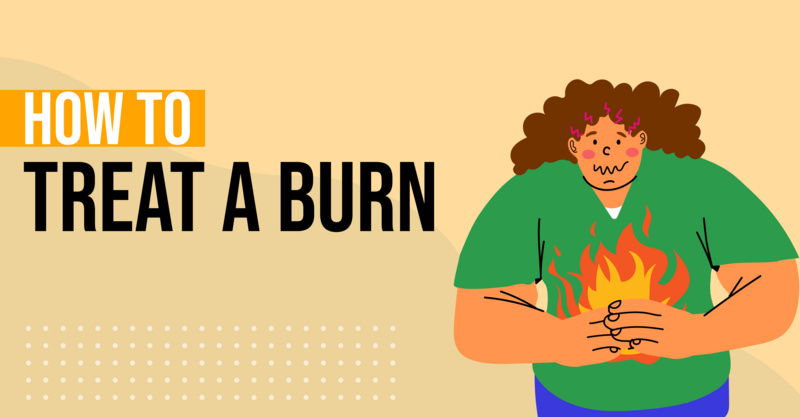Key Points
- Fresh produce can be a source of listeria bacteria, which can cause symptoms like muscle aches, fever, nausea, and diarrhea. To avoid this, scrub your produce and keep it stored at temperatures below 40 degrees Fahrenheit.
- Unpasteurized juices or milk can contain E. coli bacteria, leading to digestive issues such as diarrhea, vomiting, and nausea. Always check the label to ensure these liquids are pasteurized, especially when purchasing from roadside stands, farms, or health food stores.
- Botulism can be found in improperly canned or preserved foods, including home canned items, honey, cured meats, and certain types of fish. Symptoms include vomiting, difficulty breathing or swallowing, blurred or double vision, and weakness. Avoid giving honey to children under 12 months and steer clear of canned foods with bulging or leaking containers.
- The bacteria clostridium perfringens is often found in meats, stews, gravies, and sauces that are cooked and then kept warm for a long time before serving. Symptoms include abdominal cramps, nausea, or vomiting. To prevent this, serve foods immediately after they are cooked or keep them at a temperature above 140 degrees Fahrenheit.
- To prevent bacterial infections from food, wash raw produce, avoid unpasteurized beverages, inspect canned foods before eating, and keep cooked foods at recommended temperatures.
Most of us know eating raw chicken is never recommended, but are there other food safety tips you should know about to avoid food poisoning? Here are four that may surprise you.
#1 Listeria in Fresh Produce
WebMD says consumers should beware of contaminated fresh produce. In 2011, the listeria bacteria spread like wildflowers and was found in all types of fresh produce, but it's mostly prominent in melons.
Symptoms of the ingested bacteria include muscle aches, fever, nausea, and diarrhea. The scary thing is the symptoms may not appear for up to two months after eating the contaminated produce. Keep the listeria bacteria at bay by scrubbing raw produce and making sure produce is kept cold, below 40 degrees Fahrenheit.
#2 E. coli in Juices and Milk
You've probably heard about the dangers of the E. coli bacteria in raw meat but did you know it can also be found in unpasteurized juices or milk? Ingesting unpasteurized juices or milk will wreak havoc to your digestive system. Diarrhea, vomiting, and nausea are common symptoms.
If you purchase all your juices and milk from grocery stores, rest assured they are pasteurized. Be wary of roadside stands, farms, and even the juices or milk in some health food stores. Read the label to ensure these liquids are pasteurized to avoid the E. coli bacteria. If you do ingest unpasteurized juices or milk and your symptoms are severe, head to an urgent care for treatment. If you simply must have your favorite farm cider, boil it before drinking.
#3 Botulism in Canned Foods
Again, WebMD warns botulism can be found in canned foods, especially those "improperly canned or preserved." The most common threats are in home canned items, honey, cured meats, and smoked, fermented, or salted fish.
Botulism poisoning symptoms include vomiting, difficulty breathing or swallowing, blurred or double vision and weakness, even paralysis. Never give honey to children under 12 months of age and avoid canned foods where the container is bulging or leaking. Another size of bad canned foods is if the liquid insider "spurts out upon opening," says WebMD. If you suspect botulism poisoning, head to retail clinics to obtain immediate urgent care or call 9-1-1.
#4 Meat, Gravies, or Stew with Perfringens
The bacteria called clostridium perfringens is often found in meats, stews, gravies, and sauces that are cooked and then kept warm for a long time before the food is served. The rule of thumb of keeping cold foods cold and hot foods hot, applies here. Serve foods immediately after they are cooked, or if you will be offering the food for an extended period, make sure the food is kept at a temperature above 140 degrees Fahrenheit.
Symptoms of a C. perfingens bacterial infection include abdominal cramps, nausea, or vomiting. Although this is a short-lasting bacterial infection if you suspect it, seek medical treatment at your nearest walk in clinic to get relief from symptoms.
These are four not-so-common ways bacteria can invade our bodies causing distress. To prevent infections, wash raw produce, avoid unpasteurized beverages, inspect canned foods before eating, and keep cooked foods at recommended temperatures.
Frequently asked questions
What are the symptoms of listeria infection from fresh produce?
Symptoms of listeria infection include muscle aches, fever, nausea, and diarrhea. These symptoms may not appear for up to two months after eating the contaminated produce.How can one prevent listeria infection from fresh produce?
You can prevent listeria infection by scrubbing raw produce and ensuring that it is kept cold, below 40 degrees Fahrenheit.Can E. coli bacteria be found in unpasteurized juices or milk?
Yes, E. coli bacteria can be found in unpasteurized juices or milk. This can cause diarrhea, vomiting, and nausea.What are the symptoms of botulism poisoning from canned foods?
Botulism poisoning symptoms include vomiting, difficulty breathing or swallowing, blurred or double vision, and weakness, even paralysis.How can one prevent botulism poisoning from canned foods?
To prevent botulism poisoning, avoid giving honey to children under 12 months of age and avoid canned foods where the container is bulging or leaking. Also, be wary of canned foods where the liquid inside spurts out upon opening.What is clostridium perfringens and in which foods is it commonly found?
Clostridium perfringens is a bacteria often found in meats, stews, gravies, and sauces that are cooked and then kept warm for a long time before the food is served.What are the symptoms of a C. perfringens bacterial infection?
Symptoms of a C. perfringens bacterial infection include abdominal cramps, nausea, or vomiting.How can one prevent a C. perfringens bacterial infection?
To prevent a C. perfringens bacterial infection, serve foods immediately after they are cooked, or if you will be offering the food for an extended period, make sure the food is kept at a temperature above 140 degrees Fahrenheit.










